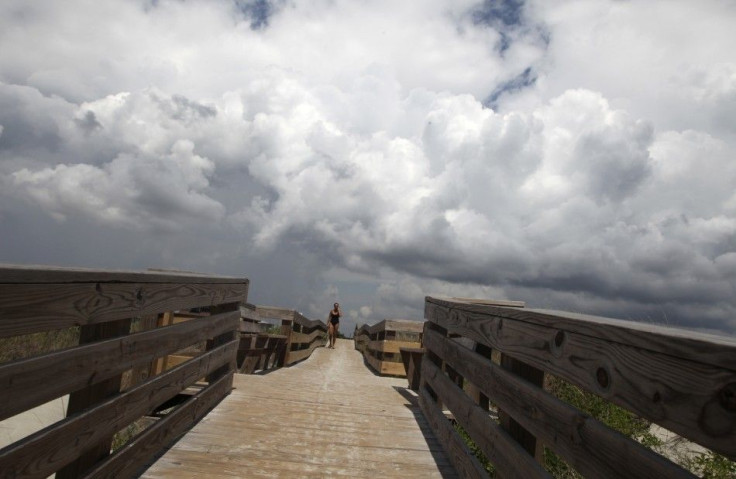Hurricane Irene Poised to Halt East Coast Air Travel from Carolinas to Maine

With Hurricane Irene tracking straight up the East Coast of the United States, airlines began cancelling flights and getting planes out of harm's way.
Irene is likely to force hundreds of flight cancellations and delays throughout the weekend, and the effect on U.S. air travel is likely to be huge, rippling across the country.
Many airlines began issuing travel waivers allowing flyers to change their travel plans without penalty for several East Coast destinations from the Carolinas to Boston.
Delta Air Lines reported four cancellations and United Continental one on Thursday as others watch and wait before deciding on how many flights to scrub and where on Friday.
American Airlines and its American Eagle affiliate (which flies extensively in the Caribbean) cancelled 126 flights on Thursday, most to the Bahamas and south Florida.
According to flight-tracking service FlightAware, flights out of New York and Washington areas were delayed up to two hours on Thursday, well ahead of the storm.
Delta Air Lines has agreed to allow passengers transiting through airports in the Mid-Atlantic and portions of the Northeast over the next four days to make free changes to their itinerary or receive refunds if their flights are cancelled or significantly delayed.
American Airlines issued a similar policy.
Southwest Airlines, which runs about 32 percent of the flights in the region, began waiving fees for flights through certain airports across the south and up through Baltimore and Washington Dulles.
US Airways has relaxed its change-fee policies for passengers scheduled to fly from more than a dozen cities along the East Coast from Savannah, Georgia to Norfolk, Virginia.
JetBlue is waiving change/cancel fees and fare differences for flyers traveling to and from the east coast of Florida up through the New England States.
Airlines have to play a bit of a guessing game as they prepare for Irene.
In general, if the airlines waive ticket-change fees and cancel flights long before the storm arrives, this helps reduce the number of travelers and flight crew stranded. Also, cancelling well enough in advance keeps planes out of the way of danger and allows the airlines to resume service faster after the storm passes.
However, moving the planes out of a storm path can prove a risky move. The path can easily change, creating a situation where hundreds of flights were cancelled unnecessarily.
Most everyone expects New York to get hit, so you're obviously not going to leave a lot of planes on the ground in New York, waiting for a problem, Tim Smith, a spokesman for American Airlines, told Fox News.
Both John F. Kennedy and LaGuardia Airports are in Zone A of New York City's Evacuation Zones, meaning that they pose the highest risk of flooding from ANY hurricane making landfall close to New York City.
If the storm remains on its current path Friday morning, it is very likely that the cancellations will begin as airlines start evacuating the planes.
Back on the ground, Amtrak has cancelled train service operating south of Washington for Friday, Saturday, and Sunday in anticipation of Irene. Service to the Northeast corridor has not yet been affected, but Amtrak warned more cancellations may be necessary.
For now, officials at the Federal Emergency Management Agency (FEMA) are urging all residents and travelers on the East Coast to monitor the storm and have a plan of action in mind.
© Copyright IBTimes 2024. All rights reserved.






















